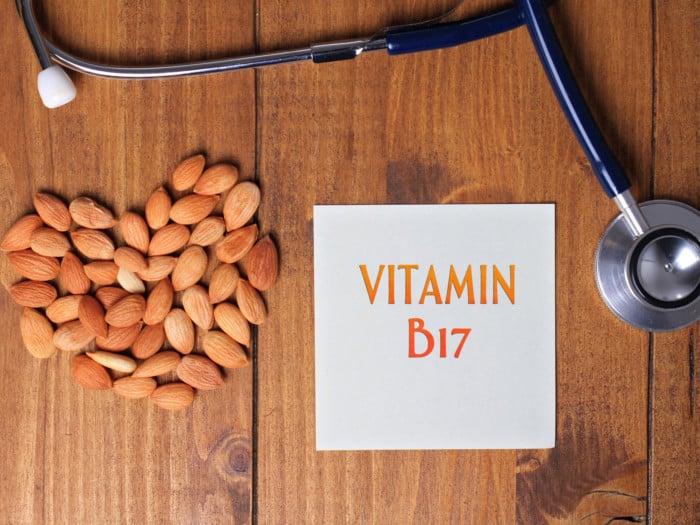The use of vitamin B17 is controversial but potentially beneficial in certain ways for human health.
What is Vitamin B17?
Vitamin B17 is more commonly known as amygdalin, which is a chemical compound found in certain foods, most famously the pits of apricots, as well as apple, pear, plum, and peach seeds. The reason that amygdalin is so well known is that it can partially be broken down into cyanide within the body, which can be potentially toxic, so excessive consumption of amygdalin is not recommended. However, it has also been used widely in traditional and more modern medical practices for the treatment of certain chronic illnesses.
However, there is a great deal of controversy surrounding vitamin B17, even regarding its classification as a vitamin. Many people also mistake vitamin B17 for laetrile, which is a synthetic variety of amygdalin. [1]
Due to the increase in demand for apricot kernels and the elevated risk for cyanide poisoning in those attempting to naturally heal themselves with amygdalin, vitamin B17 was deemed to be illegal in the United States in 1977. More specifically, it was cited that many of the claims were unfounded, and the risk of cyanide poisoning was too great. [2]

VitaminB17 Photo Credit: Shutterstock
Vitamin B17 Benefits
The potential benefits from vitamin B17, when taken in moderation include a reduction in blood pressure, a boosted immune system, and relief from pain among others.
Blood Pressure
Some of the active compounds in vitamin B17 (amygdalin) do have other effects in the body, such as the production of thiocyanate, a well-known compound that can suppress the blood pressure. For those people suffering from hypertension, this can be an excellent way to keep your blood pressure in check and lower your risk of atherosclerosis, heart attacks, and coronary heart diseases. [3]
Immune System
There is some evidence that tightly controlled use of this vitamin, particularly when acquired through natural sources, can help to boost your immune system and prevent a variety of infections and ailments. [4]
Vitamin B17 Sources
The primary source of B17 includes certain kernels and seeds of popular fruits that include:
- Apricots
- Pears
- Apples
- Peaches
- Plums
And this vitamin can be found in limited supply in other foods such as:
- Millet seeds
- Flaxseeds
- Buckwheat seeds
- Squash seeds
- Raspberries
- Blueberries
- Blackberries
- Strawberries
Finally, seek out small amounts of amygdalin in eucalyptus leaves and the sprouts of various plants, such as bamboo, fava beans, alfalfa, and mung beans. When you access vitamin B17 from natural sources, it is believed to be safer than using it in the form of supplements. [5]
Vitamin B17 Side Effects
There are some potentially dangerous (and deadly) side effects of vitamin B17, so it should be taken seriously, and moderation is absolutely essential. As mentioned above, vitamin B17 is another name for amygdalin, which is a cyanogenic glycoside. This means that it can be converted into hydrogen cyanide in the body, which is an extremely potent toxin.
Cyanide poisoning has many unpleasant side effects that include: [6]
- Weakness
- Confusion
- Sleep disorders
- Headaches
- Shortness of breath
- Dizziness
- Abdominal pain
- Nausea, and vomiting
These side effects have led many people, particularly in the US, to completely dismiss the potential use of vitamin B17. The book, Social Science & Medicine. Part A: Medical Psychology & Medical Sociology, co-authored by Gerald E.Markle and James C Peterson, states that the debate continues to rage on over the use, existence, and classification of vitamin B17. Depending on where you are in the world, you may be able to access it or hear different opinions from qualified doctors. The best advice you can follow is, if you use it, always practice extreme moderation that too under a doctor’s supervision. [7]
